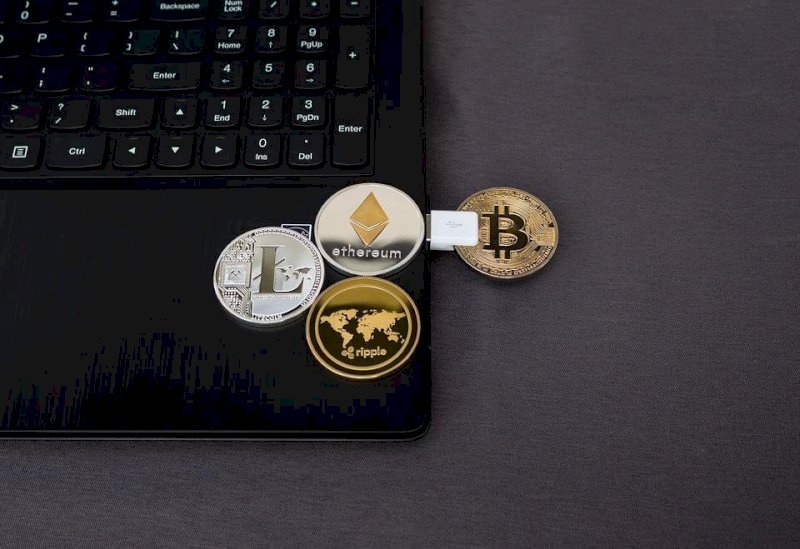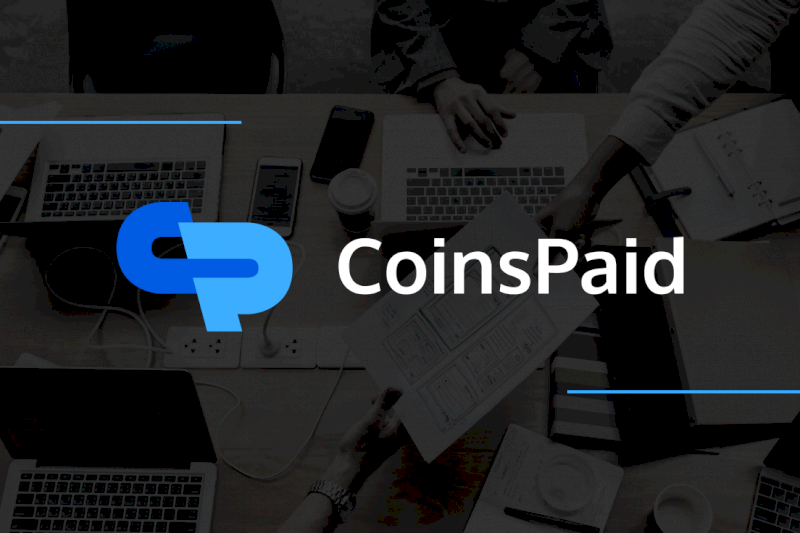TOP Best Cryptocurrency Wallets in 2023
A reliable cryptocurrency wallet is the key to successful crypto trading & holding. There are many types of wallets, and it’s not easy to choose the right one, so we’re here to help.
Summary:
- Why crypto wallets are gaining popularity
- Pros and cons of crypto wallets
- CoinsPaid wallet
Why crypto wallets are gaining popularity
There are now over 300 million crypto users in the world. Whole countries began to adopt and legalize crypto, with El Salvador and CAR even making Bitcoin legal tender, and it’s likely that other countries will follow their example. The DeFi and NFT markets are growing in leaps and bounds. From projects for geeks, they become a thing for everyone – and guess what, you need a secure crypto wallet to enjoy them.
Pros and Cons of online crypto wallets
What is a crypto wallet?
A crypto wallet isn’t actually a wallet, meaning that your cryptocurrencies aren’t stored there; they are stored on a blockchain. A crypto wallet is a way to store one’s secret keys, which are needed to access your cryptocurrency. It’s a bit similar to a bank card: your funds aren’t stored on the card itself, but rather in the account – though you access them with the help of the card.
Any wallet for cryptocurrency relies on pairs of keys: a private and a public one. A public key is your wallet’s address. This key is no secret: all the system participants know about it, you can give it to anyone when they want to send you crypto etc. A private key is different. It works like a password, and you need it to make transactions.
The final term you need to know is a seed phrase. This is a phrase consisting of 12 to 24 words that helps you to restore your private key in case you lose it. If you happen to lose both your private key and seed phrase, you’ll lose access to the wallet forever.
Types of personal crypto wallets
The two main types of crypto wallets are hot and cold. Hot wallets are online services for cryptocurrency storage. They are called “hot” because they are connected to the Internet and you can access your funds and make transactions at any time. Hot wallets come in the form of online wallets for cryptocurrency, desktop software, and mobile apps. Wallets on crypto exchanges work in the same way.
Warning! Exchange wallets aren’t a good place to hold your crypto. They are prone to hacker attacks, especially if a platform isn’t protected well enough. Sadly, even reputable and reliable exchanges may be hacked — so, if you don’t trade actively, you should better consider some other option.
Well, let’s get back to online cryptocurrency wallets. They have a number of pros and cons. The best part is the ability to access your funds in a few seconds. They are good for traders and crypto enthusiasts who take every opportunity to use crypto.
Hot wallets’ biggest drawback is their vulnerability. They are less likely to be the target of a hacker attack than an exchange, but it’s possible anyway. With so-called custodial hot wallets, you also need to keep in mind that you aren’t the only one to know the secret information: the server does, too. Hackers can attack both the platform’s servers and users’ devices.

Here’s a short list of the best wallets for crypto to choose from:
- MetaMask — one of the most-downloaded blockchains in the world (over 20 million users) and the best wallet for crypto DeFi users. Almost every DeFi protocol, NFT marketplace, and crypto game on Ethereum, BNB Chain, Avalanche, Polygon, and many other chains supports MetaMask. This makes it a true multi coin crypto wallet.
- Coinbase — while it was developed by the popular Coinbase trading platform, this is a non-custodial wallet (meaning that Coinbase doesn’t have access to your private keys). It supports all the chains supported by MetaMask, plus Bitcoin, Dogecoin, Litecoin, and a few others.
- Blockchain wallet — the first-ever crypto wallet, released in 2009. Still one of the most popular in the world nowadays (84 million downloads), it has a user-friendly interface and is relatively safe. It charges a commission each time a transaction is made and supports a wide range of cryptocurrencies: ETH, BTC, USDT, BCH, DOT, etc.
- Exodus — a classic Bitcoin personal wallet, considered very safe but with an interface that some users find complicated.
- Jaxx — another multi currency wallet for crypto. It’s relatively safe, charges commissions which are always different yet always big enough.
As for cold crypto wallets, they are also called hardware wallets and offline wallets, because they aren’t (normally) connected to the Internet. A cold wallet works with compatible software installed on your PC and is harder to compromise than hot wallets.
Hardware wallets have their benefits and shortcomings, too. Their greatest advantage is, of course, security. Most of the time they’re offline; that’s why it becomes so hard for hackers to access your crypto. The problem is, it becomes hard for you, too. This option is definitely not for active traders or those who use crypto often.
If you invest in crypto to make profit and consider selling some coins when they reach their new highs, experienced crypto enthusiasts recommend keeping some of it ready on your hot wallet: otherwise, you may be late.
Hardware wallets are devices looking like a USB flash drive, but they also have a seed phrase, just like any hot wallet. If you lose the device but still have the phrase, you’ll be able to recover everything. But if you lose the phrase and the device, you’ll never get your funds back.

Here are some cold wallets to choose from:
- Ledger Nano X — arguably the most popular hardware crypto wallet, sold at around $150. This is arguably the best crypto wallet for long-term storage.
- Trezor — Ledger’s close competitor. Some say that the user experience isn’t quite as good as with Ledger, and the price is higher at $250.
- Keepkey — a cheaper but less secure hardware wallet; priced at $79 on the official site
On the top of that, here are some tips on how to choose a good wallet:
- make up your mind about your goal – do you want to HOLD for the long term or do you use crypto often?
- study the reviews: they aren’t always fair, but they will give you the general idea;
- don’t forget to pay attention to the company: a good cypto wallet can only be released by a trustworthy team.
CoinsPaid: the most secure crypto wallet for business
CoinsPaid is a very interesting option, especially if you run a business. This crypto wallet was launched by CoinsPaid, the largest crypto payment provider in the world by transaction volume.
CoinsPaid has been in the market for 8 years, is parent to several brands and won many prestigious rewards. This online wallet for cryptocurrencies supports over 20 crypto and 40 fiat currencies. CoinsPaid is available as a web version, an iOS app, and an Android app.
You’ll need to pass a KYC procedure to use the wallet’s fiat features, such as converting crypto into fiat or withdrawing funds to a bank account.

Benefits:
- Reliable parent company. CoinsPaid allows over 800 merchants to accept payments in cryptocurrency, and the corporate edition of its wallet is ideal for business owners.
- Integration with the crypto payment gateway. Merchants can accumulate the crypto revenue from selling goods and services in the wallet.
- High safety level. CoinsPaid’s products have undergone three independent financial audits, which found no vulnerabilities. And of course, it has a security team working to detect and prevent any potential problems.
- No waiting for transaction confirmation thanks to cooperation with GAP600 — a service that works like a kind of an insurance service and bears all risks of failed transactions and double spending. Thanks to it, CoinsPaid users don’t have to wait for Bitcoin transaction confirmations: the funds can be credited to your balance instantly. Only the best cryptocurrency wallets have this feature.
- A cryptocurrency wallet and exchange in the same interface. You can convert crypto into fiat or another crypto on the fly - or set up automatic conversions.
- Merchants that use the company’s native token, CPD, are granted up to 50% off the transaction fees. This is a bit like BNB on Binance.
- User roles and permissions. This is important for businesses, where some team members need to be able to withdraw funds from the wallet, while others should be able to only view transaction history etc.
CoinsPaid wallet is perhaps the best crypto wallet solution for businesses right now. It’s an all in one crypto wallet and payment processing solution with a strong range of fiat features. CoinsPaid is now working on adding more functionality to its personal wallet, too.
Hopefully you’ve learned a lot of things from this article:
- what crypto wallets are and how they work;
- the difference between hot and cold wallets;
- how to choose a multi crypto wallet that meets your needs
- the best multi cryptocurrency wallets in the market.
A good strategy is to try different wallets – for example, MetaMask and CoinsPaid. The next step is to actually get yourself a crypto wallet and start to experiment with crypto transfers. Don’t keep putting it off, though: the current low crypto prices won’t last forever, so now could be the best time to download a wallet and buy some cryptocurrency.